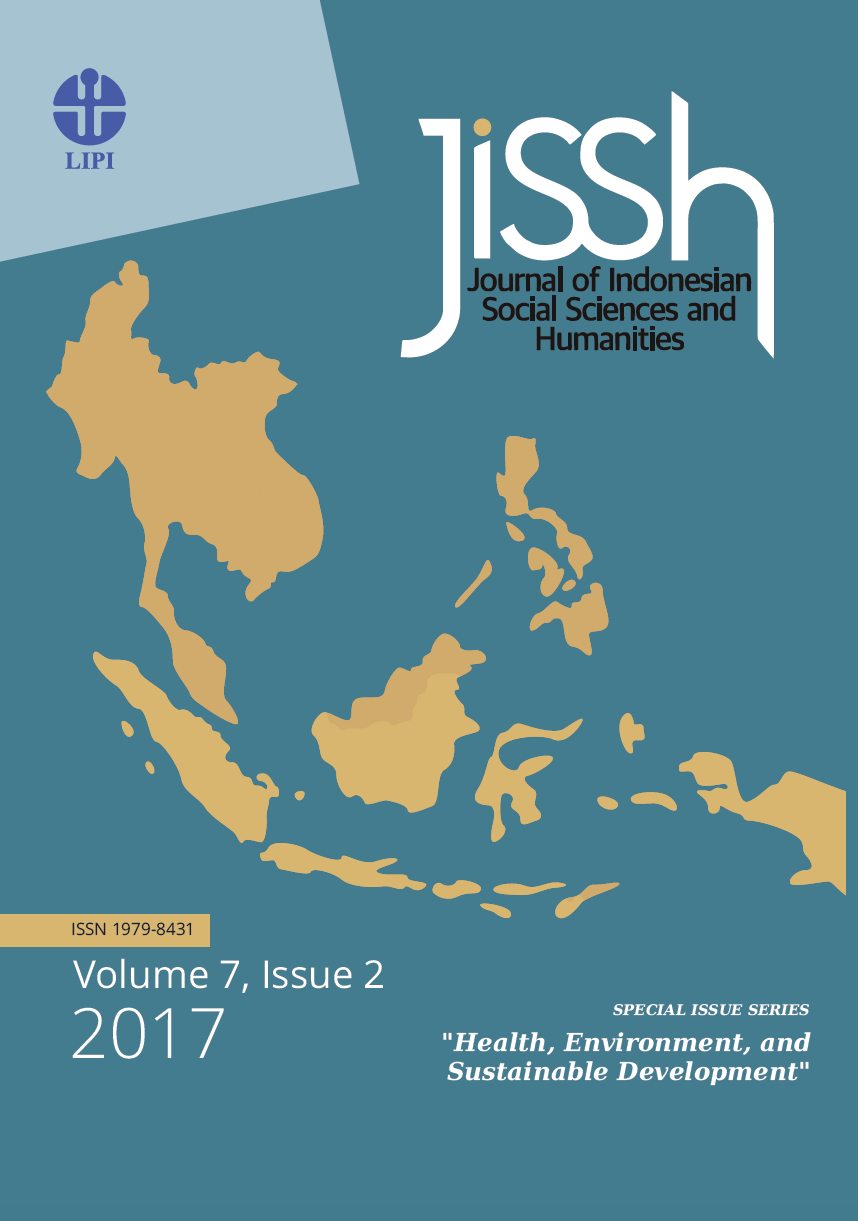Sustainable Cities in The Netherlands: Urban Green Spaces Management in Rotterdam
Keywords:
green space, sustainable city, Rotterdam, NetherlandsAbstract
One of challenges of sustainable urban development is to provide a viable environment for the population following the function of space and community activities within it. Research on green space in the Netherlands is important as a response to the global environmental crisis as well as the realization of sustainable development. This research uses an interdisciplinary approach through the analysis of the phenomena of spatial management in the context of local-global sustainable urban development. An interdisciplinary approach is used because the issue of "sustainable cities" is multidimensional, so it takes more than one perspective in reviewing it, in this multidisciplinary research involved among others anthropology, urban social planning and sociology. Based on the research problem formulated, the science perspectives are expected to answer the question of how space is interpreted, negotiated and become a vehicle for the distribution of sustainable development ideas. This dynamic also captured the context of green space management so that this study contributes to enriching theoretical studies on the construction of urban spaces. This research question is answered through qualitative methods of collecting primary data through interviews, focused discussions and observations, as well aw searching related literature as secondary data. The result of this study found that the attention of the Dutch environmental policy has also regulated spatial management, primarily related to "space" as part of human activities and has environmental and social impacts. Spatial policy in the eDutch context is articulated as a place of negotiation embodied in the EU's global and regional collective consensus.
References
d’Angremond, K. (2003). From disaster to Delta Project: the storm flood of 1953. Terra et Aqua, 3-10.
De Klerk, L., & Vijgen, J. (1992). Inner Cities as a Cultural and Public Arena: Plans and People in Amsterdam and Rotterdam. Built Environment (1978-), 18(2), 100-110. Retrieved from http://www.jstor.org/stable/23288353
Frantzeskaki, N., & Tilie, N. (2014). The Dynamics of Urban Ecosystem Governance in Rotterdam, The Netherlands. Ambio, 43(4), 542-555.
Gómez, F., Jabaloyes, J., Montero, L., De Vicente, V., & Valcuende, M. (2010). Green areas, the most significant indicator of the sustainability of cities: Research on their utility for urban planning. Journal of Urban Planning and Development, 137(3), 311-328.
Heldeweg, M.A., & Seerden, R.J.G.H. (2012). Environmental Law in The Netherlands. Alphen aan den Rijn: Kluwer Law International
Hille, J. (1997). The Concept of Environmental Space. Implications for Policies, Environmental Reporting and Assessments. Copenhagen: European Environment Agency
Klijn, E.H., & Koppenjan, J. (2016). Governance Network in Public Sector. New York: Routledge.
Nijkamp, P. & Parrells, A. (1994) Sustainable Cities in Europe: A Comparative Analysis of Urban Energy Environmental Policies. London: Earthscan Publications.
Pelling, M. (2003). The Vulnerability of Cities: Natural Disasters and Social Resilience (1st edition). London: Routledge.
Peters, A. (2016, 12 May). Experimental City: How Rotterdam Became A World Leader in Sustainable Urban Design. Retrieved October 17, 2017, from https://www.fastcodesign.com/3060998/experimental-city-how-rotterdam-became-the-world-leader-in-sustainable -urb
Rydén, L., Migula, P., & Andersson, M. (2003). Environmental Science: Understanding, Protecting and Managing the Environment in the Baltic Sea Region. Uppsala: Baltic University Press.
Sandberg, L.A., Bardekjian, A., & Butt, S (2016). Urban Forests, Trees and Greenspace: A Political Ecology Perspective. London: Routledge.
Swanwick, C. (2009). Society’s Attitudes to and Preferences for Land and Landscape. Land Use Policy, 26, 62–75. https://doi.org/10.1016/j. landusepol.2009.08.025
Wallace, D. (2017). Environmental Policy and Industrial Innovation: Strategies in Europe, the USA and Japan. London: Earthscan Publication Ltd.
Luuk Van der Burgt, Gemeente Rotterdam, 3rd May 2017
Downloads
Published
Issue
Section
License

This work is licensed under a Creative Commons Attribution-ShareAlike 4.0 International License.
Authors who publish with this journal agree to the following terms:
1. Authors retain copyright and grant the journal right of first publication with the work simultaneously licensed under an Attribution-ShareAlike 4.0 International (CC BY-SA 4.0) license. This license allows others to remix, adapt, and build upon the work, as long as they credit the author and license their new creations under the same terms.
2. Authors may enter into separate, additional contractual arrangements for the non-exclusive distribution of the journal’s published version of the work (e.g., posting it to an institutional repository or including it in a book), provided there is an acknowledgment of its initial publication in this journal.
3. Authors are permitted and encouraged to post their work online (e.g., in institutional repositories or on their personal website) prior to and during the submission process, as this can lead to productive exchanges and increase citations of the published work (See The Effect of Open Access ).


















